-
Executive Summary
-
Scope of the Report
-
Market Definition
-
Scope of the Study
- Research Objective
- Assumptions & Limitations
-
Markets Structure
-
Market Research Methodology
-
Research Function
-
Secondary Research
-
Primary Research
-
Forecast Model
-
Market Landscape
-
Supply Chain Analysis
- Raw Material Suppliers
- Manufacturers/Producers
- Distributors/Retailers/Wholesalers/E-Commerce
- End-Users
-
Porter’s Five Forces Analysis
- Threat of New Entrants
- Bargaining Power of Buyers
- Bargaining Power of Suppliers
- Threat of Substitutes
- Intensity of Competitive Rivalry
-
Market Dynamics of Global Fruit Beer Market
-
Introduction
-
Drivers
-
Restraints
-
Opportunities
-
Challenges
-
Global Fruit Beer Market, by Flavor
-
Introduction
-
Peach
- Market Estimates & Forecast, 2023–2032
- Market Estimates & Forecast, by Region, 2023–2032
-
Raspberry
- Market Estimates & Forecast, 2023–2032
- Market Estimates & Forecast, by Region, 2023–2032
-
Cherry
- Market Estimates & Forecast, 2023–2032
- Market Estimates & Forecast, by Region, 2023–2032
-
Apricot
- Market Estimates & Forecast, 2023–2032
- Market Estimates & Forecast, by Region, 2023–2032
-
Apple
- Market Estimates & Forecast, 2023–2032
- Market Estimates & Forecast, by Region, 2023–2032
-
Others
- Market Estimates & Forecast, 2023–2032
- Market Estimates & Forecast, by Region, 2023–2032
-
Global Fruit Beer Market, by Distribution channel
-
Introduction
-
Store-Based
- Departmental Store
- Bars & Restaurants
- Supermarket
-
Non Store-Based
- Market Estimates & Forecast, by, 2023–2032
- Market Estimates & Forecast, by Region, 2023–2032
-
Global Fruit Beer Market, by Region
-
Introduction
-
North America
- Market Estimates & Forecast, 2023–2032
- Market Estimates & Forecast, by Flavor2023–2032
- Market Estimates & Forecast, by Distribution channel, 2023–2032
- U.S.
- Canada
- Mexico
-
Europe
- Market Estimates & Forecast, 2023–2032
- Market Estimates & Forecast, by Flavor2023–2032
- Market Estimates & Forecast, by Distribution channel, 2023–2032
- Germany
- France
- Italy
- Spain
- U.K
- Rest of Europe
-
Asia-Pacific
- Market Estimates & Forecast, 2023–2032
- Market Estimates & Forecast, by Flavor2023–2032
- Market Estimates & Forecast, by Distribution channel, 2023–2032
- Japan
- China
- India
- Australia & New Zealand
- Rest of Asia-Pacific
-
Rest of the World
- Market Estimates & Forecast, 2023–2032
- Market Estimates & Forecast, by Flavor2023–2032
- Market Estimates & Forecast, by Distribution channel, 2023–2032
- South America
- The Middle East
- Africa
-
Company Landscape
-
Introduction
-
Market Strategy
-
Key Development Analysis
-
(Expansions/Mergers & Acquisitions/Joint Ventures/New Product Developments/Agreements/Investments)
-
Company Profiles
-
Joseph James Brewing Company, Inc. (U.S.)
- Company Overview
- Financial Updates
- Product/Business Segment Overview
- Strategy
- Key Developments
- SWOT Analysis
-
New Belgium Brewing Company (U.S.)
- Company Overview
- Financial Updates
- Product/Business Segment Overview
- Strategy
- Key Developments
- SWOT Analysis
-
Brewery Ommegang (U.S.)
- Company Overview
- Financial Updates
- Product/Business Segment Overview
- Strategy
- Key Developments
- SWOT Analysis
-
All Saints Brewing Company (U.S.)
- Company Overview
- Financial Updates
- Product/Business Segment Overview
- Strategy
- Key Developments
- SWOT Analysis
-
Lindemans Brewery (Belgium)
- Company Overview
- Financial Updates
- Product/Business Segment Overview
- Strategy
- Key Developments
- SWOT Analysis
-
Lost Coast Brewery (U.S.)
- Company Overview
- Financial Updates
- Product/Business Segment Overview
- Strategy
- Key Developments
- SWOT Analysis
-
Magic Hat Brewing Company (U.S.)
- Company Overview
- Financial Updates
- Product/Business Segment Overview
- Strategy
- Key Developments
- SWOT Analysis
-
Shipyard Brewing Company (U.S.)
- Company Overview
- Financial Updates
- Product/Business Segment Overview
- Strategy
- Key Developments
- SWOT Analysis
-
Unibroue, Wells & Young’s Ltd (U.K)
- Company Overview
- Financial Updates
- Product/Business Segment Overview
- Strategy
- Key Developments
- SWOT Analysis
-
Brouwerij Van Honsebrouck N.V. (Belgium)
- Company Overview
- Financial Updates
- Product/Business Segment Overview
- Strategy
- Key Developments
- SWOT Analysis
-
Abita Brewing Co. (U.S)
- Company Overview
- Financial Updates
- Product/Business Segment Overview
- Strategy
- Key Developments
- SWOT Analysis
-
11.Conclusion
-
LIST OF TABLES
-
Global Fruit Beer Market, by Region, 2023–2032
-
North America: Fruit Beer Market, by Country, 2023–2032
-
Europe: Fruit Beer Market, by Country, 2023–2032
-
Asia-Pacific: Fruit Beer Market, by Country, 2023–2032
-
Middle East & Africa: Fruit Beer Market, by Country, 2023–2032
-
South America: Fruit Beer Market, by Country, 2023–2032
-
Global Fruit Beer Flavor Market, by Region, 2023–2032
-
North America: Fruit Beer Flavor Market, by Country, 2023–2032
-
Europe: Fruit Beer Flavor Market, by Country, 2023–2032
-
Table10 Asia-Pacific: Fruit Beer Flavor Market, by Country, 2023–2032
-
Table11 Middle East & Africa: Fruit Beer Flavor Market, by Country, 2023–2032
-
Table12 South America: Fruit Beer Flavor Market, by Country, 2023–2032
-
Table13 Global Fruit Beer Distribution Channel Market, by Region, 2023–2032
-
Table14 North America: Fruit Beer Distribution Channel Market, by Country, 2023–2032
-
Table15 Europe: Fruit Beer Distribution Channel Market, by Country, 2023–2032
-
Table16 Asia-Pacific: Fruit Beer Distribution Channel Market, by Country, 2023–2032
-
Table17 Middle East & Africa: Fruit Beer Distribution Channel Market, by Country, 2023–2032
-
Table18 South America: Fruit Beer Distribution Channel Market, by Country, 2023–2032
-
Table19 Global Flavor Market, by Region, 2023–2032
-
Table20 Global Distribution channel Market, by Region, 2023–2032
-
Table21 North America: Fruit Beer Market, by Country
-
Table22 North America: Fruit Beer Market, by Flavor
-
Table23 North America: Fruit Beer Market, by Distribution Channel
-
Table24 Europe: Fruit Beer Market, by Country
-
Table25 Europe: Fruit Beer Market, by Flavor
-
Table26 Europe: Fruit Beer Market, by Distribution channel
-
Table27 Asia-Pacific: Fruit Beer Market, by Country
-
Table28 Asia-Pacific: Fruit Beer Market, by Flavor
-
Table29 Asia-Pacific: Fruit Beer Market, by Distribution channel
-
Table30 Middle East & Africa: Fruit Beer Market, by Country
-
Table31 Middle East & Africa Fruit Beer Market, by Flavor
-
Table32 Middle East & Africa Fruit Beer Market, by Distribution channel
-
Table33 South America: Fruit Beer Market, by Country
-
Table34 South America Fruit Beer Market, by Flavor
-
Table35 South America Fruit Beer Market, by Distribution channel
-
LIST OF FIGURES
-
Global Fruit Beer Market Segmentation
-
Forecast Research Methodology
-
Five Forces Analysis of Global Fruit Beer Market
-
Value Chain of Global Fruit Beer Market
-
Share of Global Fruit Beer Market in 2023, by Country (%)
-
Global Fruit Beer Market, 2023–2032,
-
Global Fruit Beer Market Size by Flavor, 2023
-
Share of Global Fruit Beer Market, by Flavor, 2023–2032
-
Global Fruit Beer Market Size, by Distribution channel, 2023
-
Share of Global Fruit Beer Market, by Distribution channel, 2023–2032
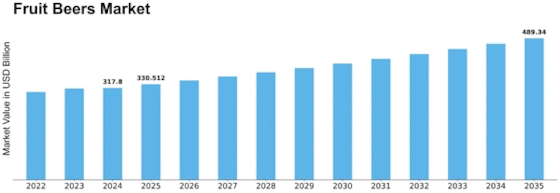


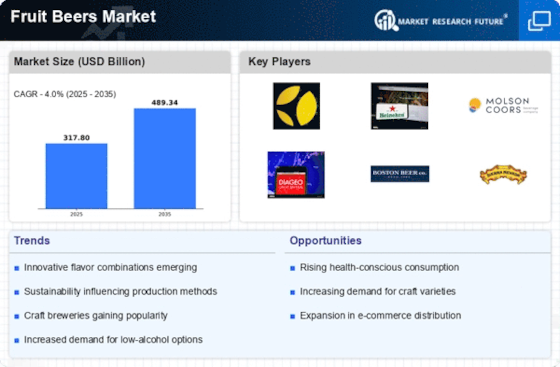
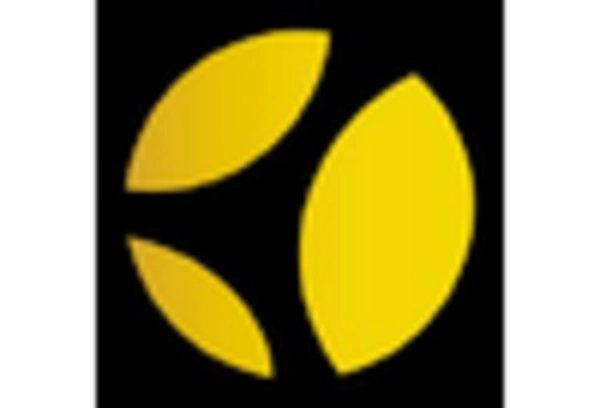
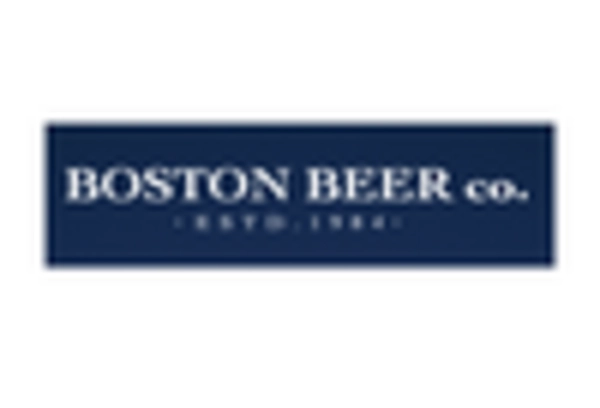

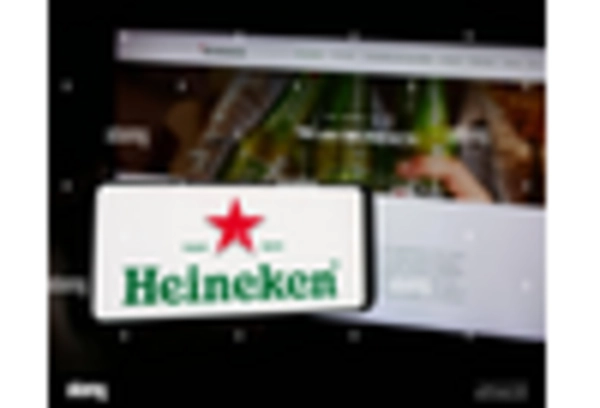
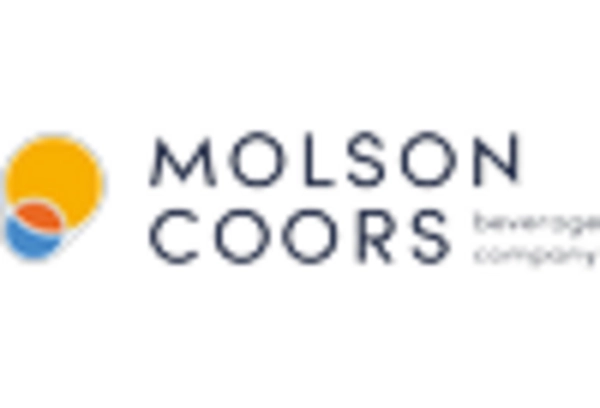
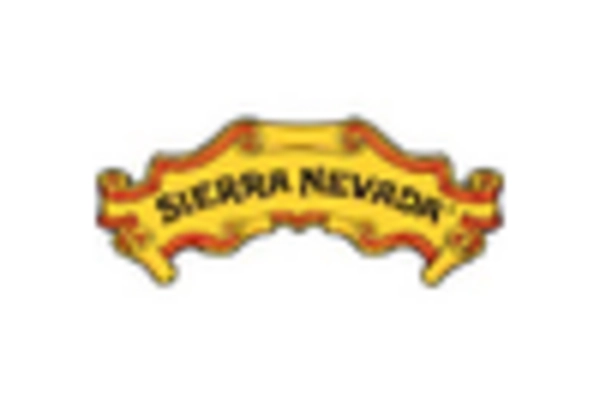









Leave a Comment